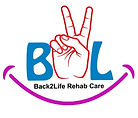What Is Neurological fatigue and How to Avoid it (part: 1)
- Dr Suvradeep Ganguly

- Apr 1, 2022
- 3 min read

Aim : Aim of these Blog to offer general advise to people living with fatigue after any type of Neurological Disease..
Neurological Fatigue: Chronic Fatigue is a typical symptoms of neurological diseases and is most disabling in multiple sclerosis ,post poliomyelitis and ion chronic fatigue symptoms.
What is fatigue?
When the term is used by us (Heath Professionals), fatigue describes an overwhelming feeling of tiredness, weakness or lack of energy. It is more than just feeling tired or sleepy, although these symptoms may also occur.
Fatigue is a symptom, rather than a condition, and can be mental, physical or a combination of both. For people with neurological conditions, chronic fatigue can lead to greater disability and lower quality of life.
What is Neurological Fatigue?
Neurological fatigue is a overwhelming feeling of tiredness which will be enough to make people lazy or to prevent from doing everyday self-activities including doing therapy exercises. It is a symptom rather than a condition and can be mental, physical or a combination of both.
Causes of Neurological Fatigue:
The exact causes of neurological fatigue in many condition isn’t fully understood .Resherch has shown several factors may contribute to neurological fatigue.
Diseases affecting the central nervous ,peripheral and automatic nervous system can cause what is known as central fatigue . This can make an impact on perception of effort along with in limit how long you can sustain mental and physical activities.
Or
Nervous system and systematic inflammation and over a activation of the immune system seem to play a part in causing neurological fatigue in some conditions.
Or
Understanding your Fatigue:
Asking following questions can help you to fight with your Neurological Fatigue.
1.Is my sleep Disturbed?(In cases of general fatigue you will asleep after laying down)**
2.How much your mood affecting your fatigue?
3.What activities makes your fatigue better or worse?
4.How does your fatigue fluctuate throughout the day?
Learning your triggers
Take note of what exacerbates your fatigue – is it Physical tasks? Or Perhaps being in busy or Distracting Environments or Concentrating on one thing for a long time .Identifying trigger factor for your fatigue is one of most primary and crucial initiative for fatigue management and A Physical Therapist or Psychosomatic disorder specialist might suggest you keep a diary for 1-2 weeks to identify patterns in your fatigue, including triggers and other influencing factors.
Avoiding the ‘Boom-Bust’ cycle
Most people tend to have a time in the day when they feel they have more energy. Often there is a temptation to do as much as possible during these times, but this leads to periods of enforced rest and fatigue during a subsequent ‘recovery’ period. We refer to this cycle as ‘boom and bust’ and it often leads to reduced activity levels over time.
It is comparable to going on a big shopping spree as soon as you get paid and then being in debt for the rest of the month.
The aim is to balance activity and rest in order to reduce the variations in activity levels.
BOOM-BUST CYCLE

2. Balancing Activity between work and Rest

The Effects of fatigue
Fatigue can affect your mood, concentration, memory and your ability do to the daily tasks you need or want to do. It may be helpful to explain to others how fatigue affects you and help them to understand the limits of your energy resource. Working with an occupational therapist can help reduce the impact of your fatigue on your daily life.
How a Neuro Physiotherapist or Psychosomatic Disorder specialist help Fatigue?
Neuro Physiotherapist or Psychosomatic Disorder specialist at the B2LCARE.COM(Neuro Physiotherapy Expertise) work with people who have difficulty doing a range of daily tasks because of a neurological condition. We will consider how your physical and cognitive symptoms (including fatigue) influences your ability to do valued daily tasks. These may include getting dressed, cooking a meal, caring for children, working or socializing. An occupational therapist can help you identify what triggers your fatigue, recognition positive and negative coping strategies, and help you implement fatigue management strategies such as pacing, prioritizing, relaxation, and energy conservation.
to get details about How to overcome Neurological Fatigue(Part :2) click here
To get in touch with our executive click here:
About Author:

Dr Suvradeep Ganguly(PT)
MPT(Neurology & Psychosomatic Disorder Specialist)
CBT,NLP
BMCP(IICP)
(Consultant Physiotherapist & Psychosomatic Disorder Specialist)
















I was diagnosed with Parkinson’s disease four years ago. For over two years, I relied on Levodopa and several other medications, but unfortunately, the symptoms kept getting worse. The tremors became more noticeable, and my balance and mobility started to decline quickly. Last year, out of desperation and hope, I decided to try a herbal treatment program from NaturePath Herbal Clinic. Honestly, I was skeptical at first, but within a few months of starting the treatment, I began to notice real changes. My movements became smoother, the tremors subsided, and I felt steadier on my feet. Incredibly, I also regained much of my energy and confidence. It’s been a life-changing experience I feel more like myself again, better than I’ve…